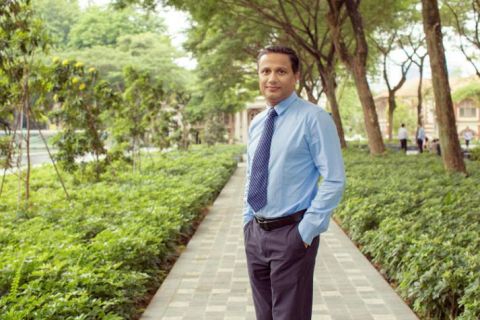
By Alvin Lee
SMU Office of Research & Tech Transfer - Chinese investments into Australia have generated considerable attention, and sometimes controversy, in recent years. Following the Northern Territory Government’s contentious 2015 sale of the Darwin Port, the Australian federal government blocked separate bids the following year by Lee Ka-Shing’s Cheung Kong Infrastructure and China’s State Grid for Ausgrid, New South Wales’s electricity distribution network.
Later that year, Canberra again blocked a deal involving a Chinese company: Shanghai CRED’s minority stake (33 per cent) in the offer to acquire cattle empire S. Kidman & Co, Australia’s largest private landowner. Although the proposal – where the major shareholder is Australia’s richest woman Gina Rinehart’s Hancock Prospecting – was eventually approved by the then Treasurer and current Prime Minister Scott Morrison, his statement on Ausgrid spoke volumes about the sensitive nature of international trade matters: “[T]he acquisition by foreign investors… of Ausgrid… would be contrary to the national interest”.
But was the Australian government explicitly discriminating against Chinese companies?
“Discrimination, in my thesis, is defined as granting different and less favourable treatment to investors in like circumstance for reason alone of their nationality,” explained Jiang Huiqin (姜慧芹), Yong Pung How Research Fellow at the Centre for Cross-Border Commercial Law in Asia, School of Law, Singapore Management University. Jiang worked on a PhD thesis at the University of New South Wales from 2013 to 2017 to address whether Australia’s foreign investment review system (FIRS) does in fact discriminate against Chinese State-Invested Enterprises (SIEs). She wrote:
“Three factors that may influence the Australian government’s final decisions on investment proposals were compared: the investment features of SIE investments from China and Singapore; the political regimes, legal infrastructures and economic landscapes of the three nations (China, Singapore and Australia); and the corporate governance differences embedded in the above three nations’ systems.”
Jiang, who recently took up a position as an Associate Professor at the School of Law and Politics at Zhejiang Sci-Tech University (浙江理工大学), concluded that “Chinese SIEs and their investments differ from those of Singapore, and that the differences between China and Australia are bigger than those between Singapore and Australia”. In other words, “the decisions of the Australian government are made on reasonable grounds rather than merely on nationality. Therefore, the discrimination-perception is rather unjustified.”
Belt and Road to the courts?
With over 80 countries signing up for China’s Belt and Road Initiative (BRI), trade and investment disputes are virtually impossible to avoid. China established the China International Commercial Court (CICC, or 最高人民法院国际商事法庭) in 2018 to handle with such wrangles. Other international commercial courts in the region, such as the Singapore International Commercial Court (SICC) and those in Dubai, Abu Dhabi and Qatar had been set up a few years prior.
Even though the CICC was set up with the express intention of ruling on disputes that involve at least one foreign element, it was also about “[r]esolving international commercial disputes in a fair, professional and efficient manner so as to provide strong judicial services for the implementation of the BRI” as stated by the Chinese Supreme Court.
It raises the question: on which cases would the CICC be ruling?
“The jurisdiction of the CICC comes from different sources,” Jiang said. “First, it could be jurisdiction by agreement – both parties agree to submit to the CICC provided that certain conditions are met. The second could be when the dispute is already subject to the jurisdiction of the Chinese Supreme Court, which can ask the CICC to hear the case.
“The third way to get jurisdiction is what we call transferred jurisdiction. If the Higher Court in China – which is a lower court compared to the Supreme Court – has jurisdiction over that dispute, then it can transfer that case to the CICC if the Supreme Court considers it appropriate.”
Jiang points out that Chinese investors investing in overseas projects are likely to favour the CICC due to Chinese being the proceeding language even though English documents can be submitted without being translated into Chinese.
While that is useful information for foreign investors looking to put money into projects in China, Jiang highlights the importance of securing proper legal representation. “Before they start their project in China, they should seek legal advice from law firms in both their home countries and in China,” she elaborated. “Foreign lawyers can only provide consulting services in China but not representation.”
From fellow to faculty
For Jiang, whose research up to now had focused mainly on international investment law, the move to Zhejiang Sci-Tech University represents an opportunity to explore international economic law, which covers “trade, investment, taxation, and monetary law”. “Also,” she added, “the University has major strength in technology, so technology-related legal research will become a focus as well”.
As she completed her research fellowship at SMU, Jiang looked back on the help she received from Prof. Tang Hang Wu, Director at SMU’s Centre for Cross-Border Commercial Law in Asia and the Deputy Director, Assoc. Prof. Yip Man.
“Both of them were my mentors. They were very helpful and provided very generous support,” she said, pointing out the guidance rendered for her research on international commercial law and BRI issues. “They gave me constructive and achievable suggestions on improving draft papers.
“The Centre also provided financial support for me to attend conferences overseas in Hong Kong and New Zealand where I established academic connections with dedicated scholars. That contributed immensely to my development as a scholar.
“Last but not least, they suggested that I sit in Singapore Company Law classes, and also in classes of the Comparative Company Law in East Asia. By attending these company law classes, I benefitted a lot and have a better understanding of Singapore’s company law and also Japan’s and Korea’s company laws. This is the field I will write on, from a comparative perspective, in the future.”
Now settled into her first full-time faculty position, Jiang is working with her colleagues on establishing a centre focusing on BRI and international economic law, and “hopefully establish a connection between Zhejiang Sci-Tech and SMU in the future”. Looking back on her journey in academia, Jiang urged prospective PhD candidates to talk it out with their supervisors when dealing with obstacles instead of facing them alone.
She advised: “If you’re struggling with something, or if there’s something you don’t understand, let your supervisors know. Communication is the most important thing, not just for PhD candidates but post-doctorates and young scholars.
“The second suggestion would be to have more international exposure by attending conferences and by doing research overseas and going on exchange programmes. You learn more when you’re a fish out of water. When you are outside of China, you will know how foreigners look at China, and what the problems are within the country. That’s why comparative law is important. It’s not just about comparing the regulations; you need to go more in-depth into the legal systems’ differences, the cultural differences, and so on.”
She thought for a second before concluding with a smile: “Last thing: Be positive.”
Back to Research@SMU May 2019 Issue
See More News
Want to see more of SMU Research?
Sign up for Research@SMU e-newslettter to know more about our research and research-related events!
If you would like to remove yourself from all our mailing list, please visit https://eservices.smu.edu.sg/internet/DNC/Default.aspx

